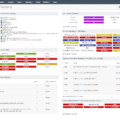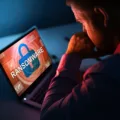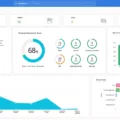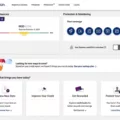Remote Access Trojans (RATs) are malicious programs that allow an attacker to gain access to and control a computer, device, or network remotely. These threats are often used for criminal activities such as spying, stealing information, and extorting money from victims.
Once the RAT is installed on a victim’s system, the attacker can send commands and receive data in response. The attacker can then use this information to gain further access to the victim’s computer and other connected networks. This type of malware is extremely dangerous because it can be used to steal confidential data or take control of entire systems.
RATs often come disguised as seemingly legitimate user-requested programs such as video games or are sent via email attachments as part of a phishing attack. Commonly known RATs include SubSeven, Back Orifice, ProRat, Turkojan, Poison-Ivy, CyberGate, DarkComet, Optix, Shark, and VorteX Rat.
It is important to note that simply possessing a remote-access tool is not illegal in itself; however, using these tools for illegal purposes is a crime. Therefore it’s important for users to be aware of these threats and take preventive action against them by using reliable antivirus software and updating their operating systems regularly. Additionally, users should be wary of downloading files from unknown sources or clicking links in suspicious emails.
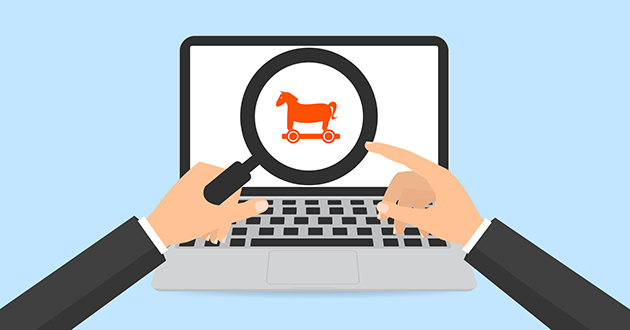
The Effects of a Remote Access Trojan
A remote access Trojan (RAT) is a type of malicious software that allows an attacker to gain remote control of an infected computer. Once the RAT has been installed on the compromised system, the attacker can use it to send commands and receive information from the machine. These commands can be used to perform various functions such as downloading additional malware, stealing confidential data, launching a denial-of-service attack, and even hijacking the system entirely. RATs can also be used to spy on users by taking screenshots or monitoring their activities via webcam. It’s important to note that a RAT is not limited to just one task and can be configured for any number of malicious activities depending on the attacker’s requirements.
Are Remote Access Trojans Illegal?
Remote-access Trojans (RATs) are malicious programs designed to give attackers access to a victim’s computer or network. They are capable of stealing data, installing additional malware, and monitoring user activity, which can lead to identity theft or other serious crimes. As such, the use of remote-access Trojans for malicious purposes is illegal in many countries. The severity of the punishment varies depending on the jurisdiction and the nature of the crime committed. In some cases, those found guilty may face penalties such as fines, jail time, and even asset forfeiture. It is important to note that possessing a remote-access tool alone is not illegal in most countries; however, using it for malicious purposes is considered a crime.
Examples of Remote Access Trojans
Remote Access Trojans (RATs) are malicious programs that allow an attacker to gain access to a victim’s computer system and perform various operations, such as gathering data, controlling the system, and executing commands. The most well-known RATs include SubSeven, Back Orifice, ProRat, Turkojan, and Poison-Ivy. These programs are used by attackers to gain unauthorized access to networks or computers.
Other RATs that have a smaller distribution and utilization include CyberGate, DarkComet, Optix, Shark, and VorteX Rat. CyberGate is a powerful remote administration tool with many features for remote control of computers. DarkComet is a powerful RAT designed for Windows operating systems that allows attackers to take control of computers remotely. Optix is another RAT that provides attackers with access to the victim’s desktop screen and keyboard. Shark is an advanced RAT designed for Windows operating systems that can be used to monitor user activity and steal passwords from victims. Finally, VorteX Rat is a remote access tool designed for Windows systems that provides attackers with full control over the victim’s computer system.
Delivery of Remote Access Trojans
Remote Access Trojans (RATs) are typically delivered to a target computer in a variety of ways. The most common form of delivery is through malicious email attachments, often disguised as legitimate files such as PDFs, Word documents, or image files. RATs may also be sent through malicious websites or through downloads of seemingly legitimate user-requested programs, such as video games. Additionally, attackers may use social engineering tactics to convince users to download and execute the RAT on their own machines. Once the RAT has been installed, attackers can gain complete control over the targeted system, allowing them to access any data stored on it and to run any program they choose.
Removing a Trojan Virus
Yes, it is possible to remove a Trojan virus. The most effective way to do so is to install an antivirus program that is capable of detecting and removing Trojans. Once the program has identified the malicious software, it will either quarantine or delete the virus, depending on how the antivirus software is configured. Additionally, if you know which software contains the malware, you can simply uninstall it. However, this does not guarantee all traces of the virus will be removed from your computer and may require additional measures such as running a deep scan or performing a system restore in order to completely remove the virus.
Removing a Trojan Virus: Is It Necessary?
Yes, it is important to remove any Trojan horse virus from your computer as soon as possible. A Trojan horse virus can cause serious damage to your computer, such as deleting valuable files or stealing personal information. This type of malicious software can also be used to gain access to other computers on the network, allowing hackers to access sensitive data and systems. It’s best to use a reputable antivirus program to scan for and remove any Trojans that may be present on your system. Additionally, you should regularly update your security software with the latest virus definitions in order to stay ahead of the latest threats.
The Risk of Trojan Horse Malware Stealing Passwords
Yes, Trojans can steal passwords. A Trojan is a type of malicious software that is designed to gain access to a user’s device without their knowledge or permission. Once installed, a Trojan can be used to collect sensitive information such as passwords, usernames, and other personal data. It can also be used to download more malicious software onto the user’s system, giving the attacker more control over the device. The stolen information is then typically sent back to the attacker who will use it for nefarious purposes. It is important to note that Trojans are difficult to detect since they often appear as legitimate programs on a user’s system. Therefore, it is important for users to take steps to protect themselves from Trojans by using reliable antivirus and antispyware programs and only downloading software from trusted sources.
Can Trojans Spread Through WiFi Networks?
Yes, Trojans can spread over WiFi. A Trojan is a type of malware that gives attackers access to your computer or network, often without you knowing. When connected to an unsecured or poorly-secured WiFi network, Trojans can spread to other devices on the same network. This is especially dangerous because a single Trojan infection can quickly spread across multiple devices and cause significant damage. To prevent Trojans from spreading over WiFi, use strong passwords for all your devices, enable encryption for your router, and never connect to unknown networks.
Can Trojans Access a User’s Camera?
Yes, Trojans can access your camera. By using Trojan horse malware, cybercriminals can gain access to and control functions of your PC, including your camera. This type of malware is often disguised as an attachment or download such as music or video files, and when it is clicked on or downloaded, the malicious code automatically runs in the background allowing the hacker to gain access to your PC’s functions. Once the hacker has gained access, they can take control of your microphone and camera and record images or audio from them remotely. It’s important to be vigilant about what you click on online and always scan any downloads with reliable anti-virus software to avoid being targeted by malicious attackers.
Detecting Trojan Viruses
Trojan viruses are typically detected by an anti-virus scanner, which is able to identify and eliminate malicious programs. The anti-virus scanner will usually perform a full computer scan and check for any suspicious files or activities. Once the scan is completed, it will inform the user of the name of the malware, as well as recommend measures to completely remove it from the system. It is important to note that some Trojans may remain undetected by anti-virus scanners, so it is important for users to be aware of their computer activities and look out for any suspicious behavior.
Can Opening an Email Lead to a Trojan Infection?
Yes, you can get a Trojan from opening an email. A Trojan is a type of malicious software or malware, that is disguised as legitimate software. When you open an email containing a Trojan, your computer can be infected without your knowledge. The Trojan then gives the attacker remote access to your computer, allowing them to modify or delete files, spy on your activity, and steal confidential information. To protect yourself from Trojans sent via email, do not open attachments or click links in emails from unknown senders. Additionally, make sure you have up-to-date anti-virus software installed on your computer.
Conclusion
In conclusion, Remote Access Trojans (RATs) are malicious pieces of software used by attackers to gain remote control over a target computer. They are often distributed along with seemingly legitimate programs, sent as email attachments, or installed through social engineering techniques. RATs can be used for a variety of malicious purposes, such as stealing data, collecting keystrokes, and recording audio and video. It is important for users to be aware of the dangers of RATs and take steps to protect themselves from infection. This includes using strong passwords, being suspicious of any email attachments or programs that appear suspicious, and ensuring that all computers have up-to-date anti-malware software installed.

